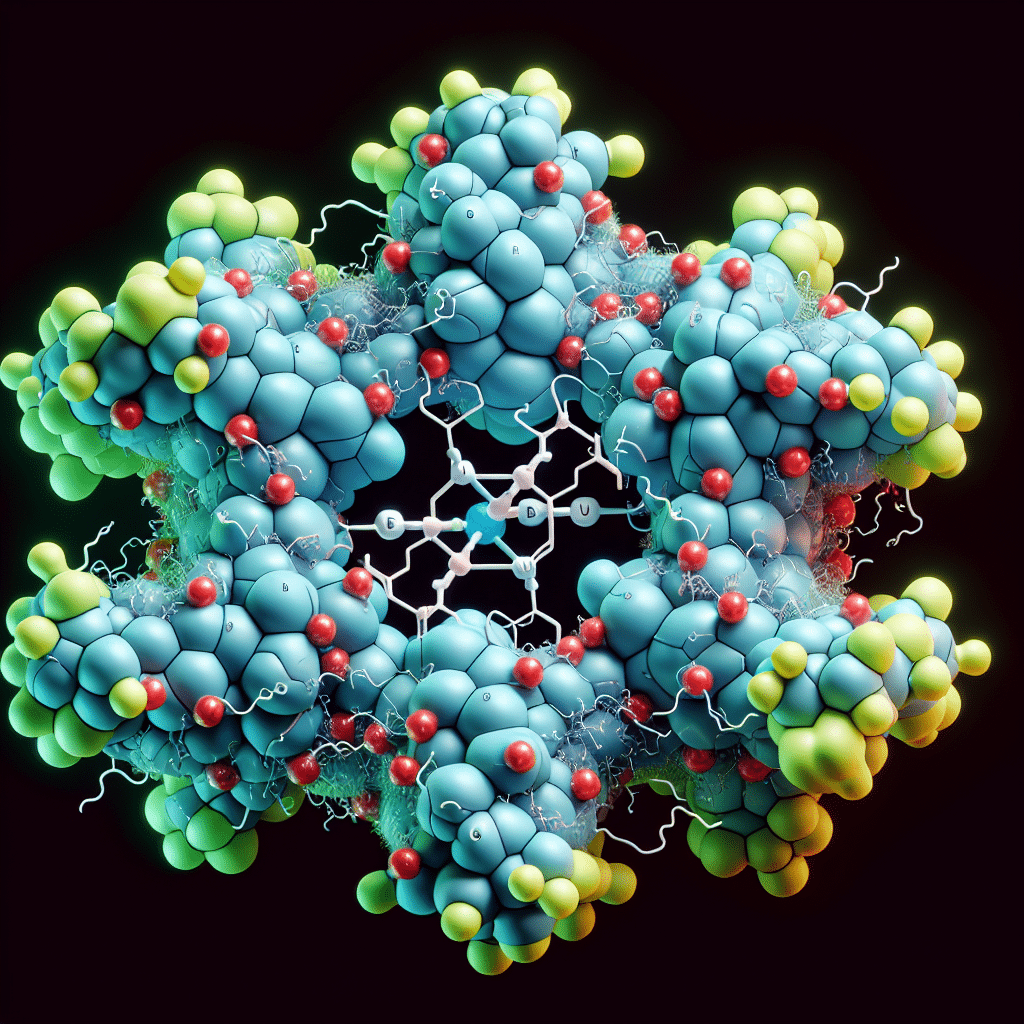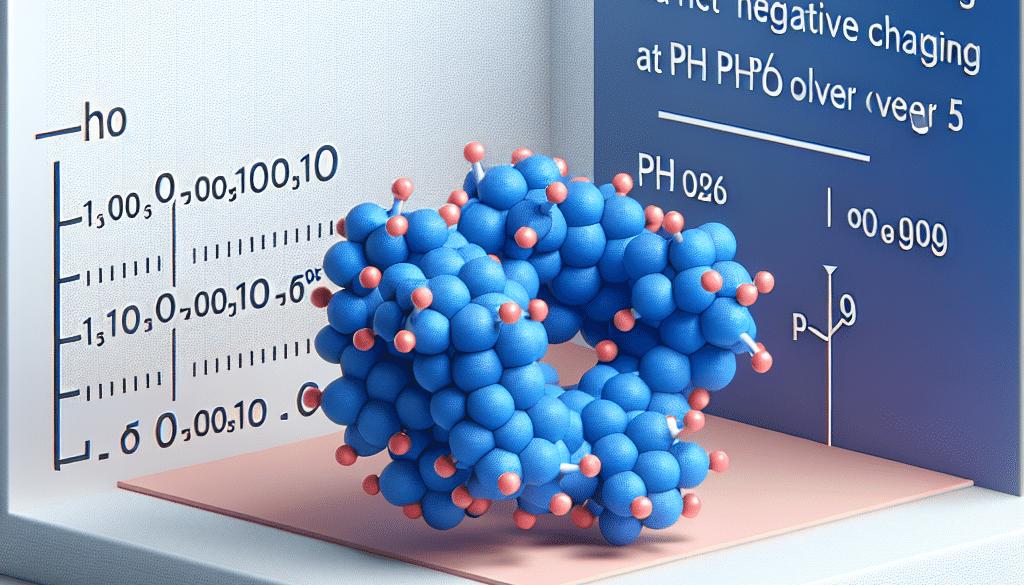What Is The Charge Of Phycocyanin?
-
Table of Contents
- Phycocyanin Charge Characteristics and Applications
- Understanding the Charge of Phycocyanin
- Effect of pH on Phycocyanin Charge
- Importance of Isoelectric Point
- Applications of Phycocyanin
- Food and Beverage Industry
- Biomedical Research
- Cosmetics Industry
- Health Benefits of Phycocyanin
- Case Studies and Research
- Conclusion: Key Takeaways on Phycocyanin Charge
- Discover ETprotein’s High-Quality Protein Products
Phycocyanin Charge Characteristics and Applications

Phycocyanin is a pigment-protein complex from the light-harvesting phycobiliprotein family, also known as a blue pigment found in cyanobacteria and certain algae. It’s not only prized for its vivid color but also for its various health benefits and applications in different industries. Understanding the charge of phycocyanin is crucial as it influences its solubility, stability, and interaction with other molecules, which is essential for its practical applications. In this article, we will delve into the charge properties of phycocyanin, its significance, and its diverse uses.
Understanding the Charge of Phycocyanin
Phycocyanin is a charged molecule, and its charge can vary depending on the pH of the solution it is in. At a neutral pH, phycocyanin carries a net negative charge. This is due to the presence of acidic amino acid residues that lose protons and become negatively charged at physiological pH levels. The charge of phycocyanin affects its behavior in solution, including its solubility, stability, and how it interacts with other molecules.
Effect of pH on Phycocyanin Charge
The charge of phycocyanin is highly dependent on the pH of its environment. At low pH values, the protein gains protons, leading to a reduction in its net negative charge. Conversely, at high pH levels, the protein loses protons, which increases its net negative charge. This pH-dependent charge behavior is critical for the extraction and purification processes of phycocyanin, as well as for its stability in various products.
Importance of Isoelectric Point
The isoelectric point (pI) of phycocyanin is the pH at which the protein has no net charge. At this point, the molecule is least soluble in water and may precipitate out of solution. The pI of phycocyanin is typically around 4.4 to 4.8, which means that at pH levels below this range, the protein will carry a net positive charge, and at pH levels above this range, it will carry a net negative charge.
Applications of Phycocyanin
The unique charge properties of phycocyanin have implications for its use in various industries. Here are some of the key applications:
Food and Beverage Industry
Phycocyanin is widely used as a natural food colorant due to its vibrant blue hue. Its charge properties are important for its solubility and stability in different food products. Phycocyanin is also used in the formulation of health drinks and nutraceuticals, where its antioxidant properties are highly valued.
Biomedical Research
In the field of biomedical research, the charge of phycocyanin allows it to bind to negatively charged cell membranes, making it useful as a fluorescent marker for cell imaging. Additionally, its antioxidant and anti-inflammatory properties are being studied for potential therapeutic applications.
Cosmetics Industry
The cosmetic industry utilizes phycocyanin as a natural dye in products such as lipsticks, eyeshadows, and other makeup items. Its charge characteristics ensure that it remains stable and does not react adversely with other ingredients.
Health Benefits of Phycocyanin
Phycocyanin is not only known for its colorant properties but also for its health benefits, which include:
- Antioxidant Activity: Phycocyanin has been shown to scavenge free radicals, protecting cells from oxidative damage.
- Anti-inflammatory Effects: It can inhibit the production of inflammatory molecules, making it potentially beneficial for conditions such as arthritis.
- Immune System Support: Phycocyanin may enhance the immune system by stimulating the production of white blood cells.
- Neuroprotective Properties: There is evidence to suggest that phycocyanin can protect neurons from damage, which may be relevant for neurodegenerative diseases.
Case Studies and Research
Several studies have highlighted the importance of the charge of phycocyanin in its applications. For instance, research on phycocyanin’s stability in beverages has shown that maintaining an appropriate pH is crucial for preventing precipitation and degradation of the pigment. Additionally, studies on the therapeutic potential of phycocyanin have taken into account its charge properties when designing drug delivery systems.
Conclusion: Key Takeaways on Phycocyanin Charge
In conclusion, the charge of phycocyanin is a fundamental aspect that affects its solubility, stability, and interaction with other molecules. Its net negative charge at physiological pH levels makes it suitable for various applications in the food and beverage industry, biomedical research, and cosmetics. The health benefits of phycocyanin, such as its antioxidant and anti-inflammatory effects, add to its value as a functional ingredient. Understanding and manipulating the charge properties of phycocyanin can enhance its applications and stability in different products.
Discover ETprotein’s High-Quality Protein Products
If you’re interested in incorporating high-quality protein products into your offerings, consider ETprotein’s range of organic bulk vegan proteins and L-(+)-Ergothioneine. Their products are characterized by a neutral taste, non-GMO, allergen-free attributes, and high purity levels, making them ideal for various industries, including nutraceuticals, pharmaceuticals, and food and beverage.
About ETprotein:
ETprotein, a reputable protein and L-(+)-Ergothioneine (EGT) Chinese factory manufacturer and supplier, is renowned for producing, stocking, exporting, and delivering the highest quality organic bulk vegan proteins and L-(+)-Ergothioneine. They include Organic rice protein, clear rice protein, pea protein, clear pea protein, watermelon seed protein, pumpkin seed protein, sunflower seed protein, mung bean protein, peanut protein, and L-(+)-Ergothioneine EGT Pharmaceutical grade, L-(+)-Ergothioneine EGT food grade, L-(+)-Ergothioneine EGT cosmetic grade, L-(+)-Ergothioneine EGT reference grade and L-(+)-Ergothioneine EGT standard. Their offerings, characterized by a neutral taste, non-GMO, allergen-free attributes, with L-(+)-Ergothioneine purity over 98%, 99%, cater to a diverse range of industries. They serve nutraceutical, pharmaceutical, cosmeceutical, veterinary, as well as food and beverage finished product distributors, traders, and manufacturers across Europe, USA, Canada, Australia, Thailand, Japan, Korea, Brazil, and Chile, among others.
ETprotein specialization includes exporting and delivering tailor-made protein powder and finished nutritional supplements. Their extensive product range covers sectors like Food and Beverage, Sports Nutrition, Weight Management, Dietary Supplements, Health and Wellness Products, and Infant Formula, ensuring comprehensive solutions to meet all your protein needs.
As a trusted company by leading global food and beverage brands and Fortune 500 companies, ETprotein reinforces China’s reputation in the global arena. For more information or to sample their products, please contact them and email sales(at)ETprotein.com today.












